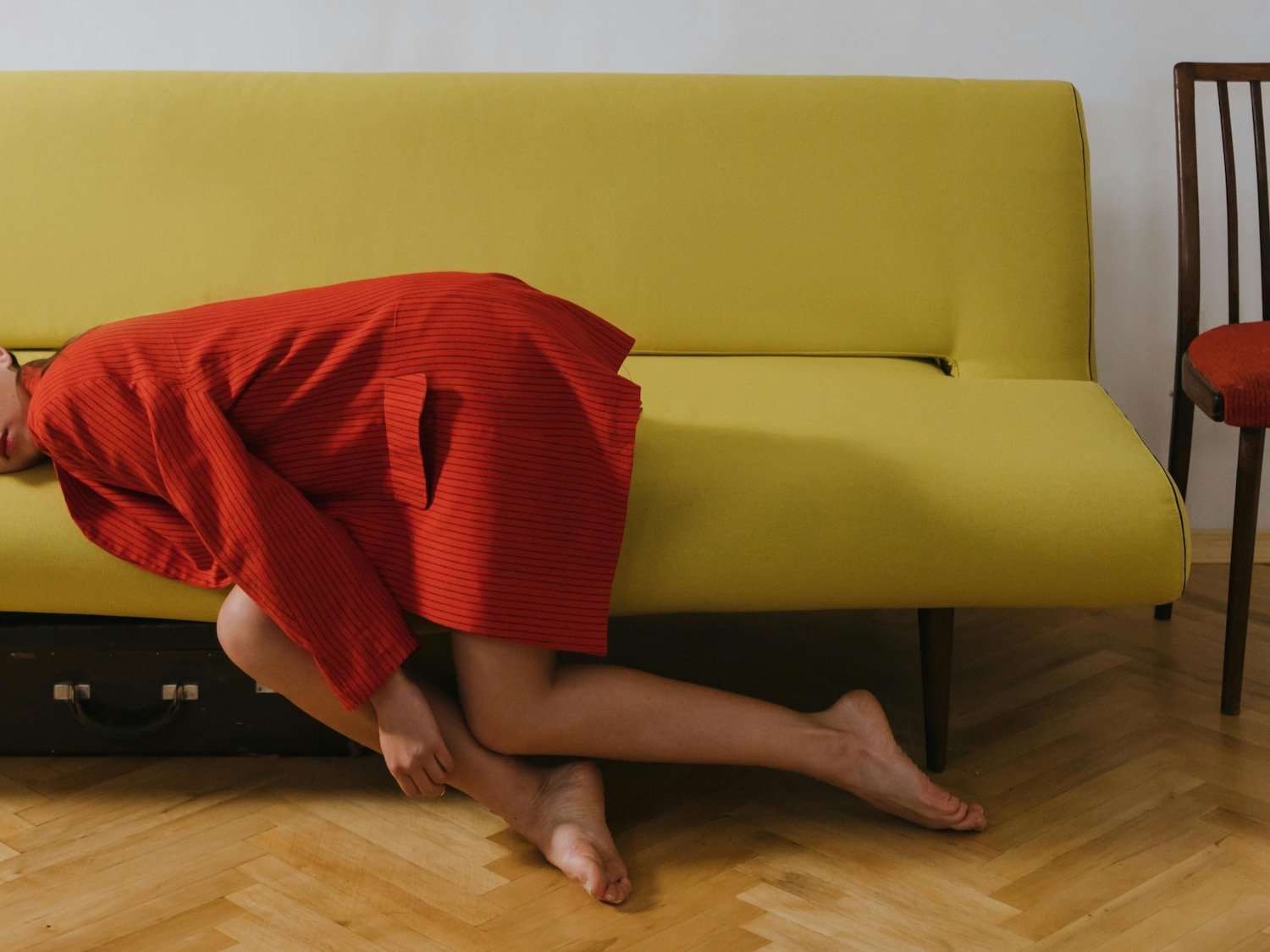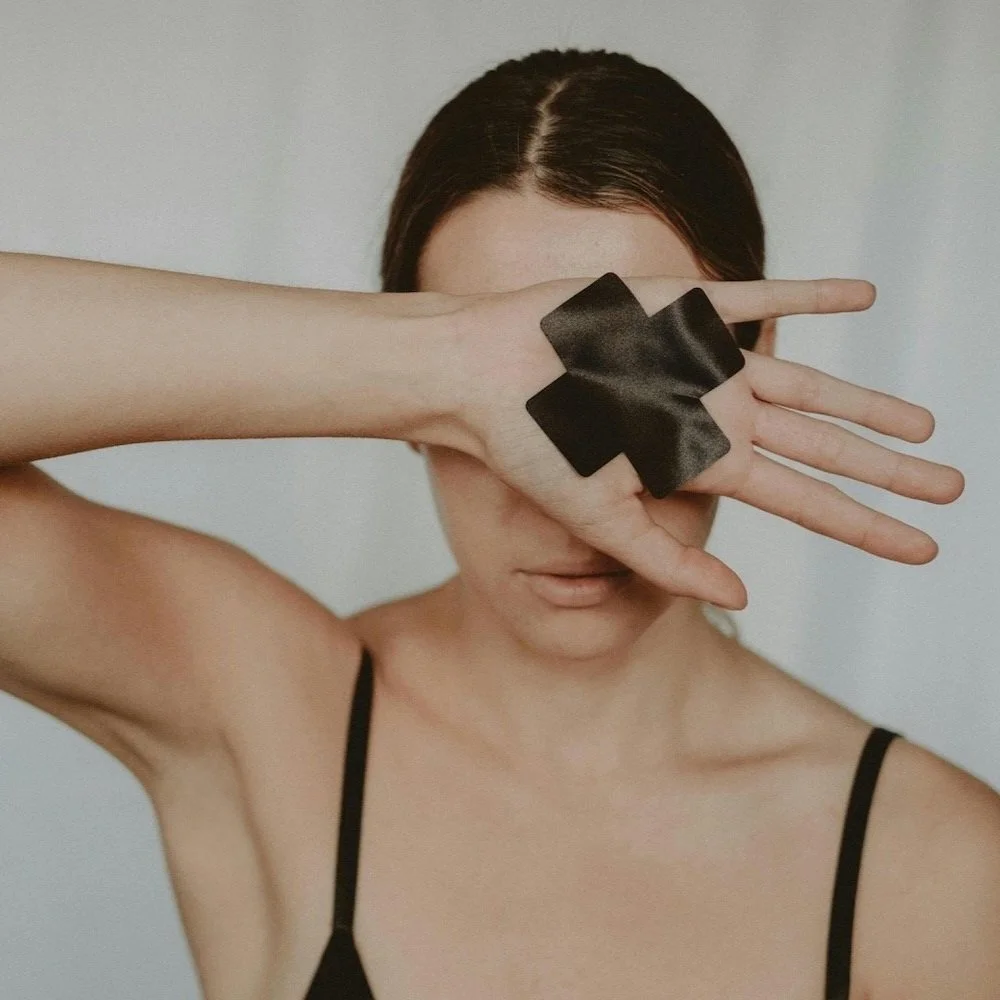16 Maddening Symptoms That Might Very Well Be Perimenopause
Not fun … but fascinating?
by The Candidly Team
Anyone else remember those weird stats we’d get in our 20s about how by our 40s, our confidence would peak, our careers would be blossoming, our personalities would be fixed, and our libidos would be that of a 21-year-old male.
Well uh … how we all doing with that? And where exactly did a small thing called perimenopause factor into all of this?
When it comes to perimenopause, we’ve heard a bit about the joint aches, the PMS-like mood swings, the sleep disturbances. It’s all sort of in the same vein as the other hormonal stuff we’ve been dealing with, albeit maybe on a lower key level, for about 30 years.
But there can be more my friends: odd stuff, deeply, deeply irritating stuff.
And since knowledge is power, we decided to air it all out right here and now. Let’s do this together, shall we?
Image: MGM
First a bit about what perimenopause even is…
Menopause is marked by when your period has stopped for a full 12 months. Perimenopause is the fun little period leading up to it where your estrogen levels go up and down, your body eventually making less of it. It commonly starts in your 40s but cam ramp up as early as your 30s.
During this time, you become less fertile and might have shorter or longer menstrual cycles. With this can come a cyclone of physical and emotional symptoms, some close to what we associate with menopause such as hot flashes or night sweats. Or you might be fine. Some women don’t get it too rough, and there are certainly health things we can do to help. More on that later.
Common Symptoms of Perimenopause
Because many of you are familiar with the usual suspects, we’ll run through the most common symptoms real quick. We do love a list.
It should be said that any (ANY!) symptoms or changes related to your health can be a sign of other medical issues occurring and should (MUST!) be talked about with your doctor and not just diagnosed from an article. We are not your doctor. We are merely women navigating the very same hellscape.
Ok the most common symptoms of perimenopause, according to Johns Hopkins University (and quite possibly your daily life) are:
Mood swings or changes (PMS symptoms are working weird hours my friends)
Changes in your sexual desire
Brain fogginess, including trouble concentrating and remembering stuff
Headaches
Night sweats or heavy general sweating
Hot flashes
Vaginal dryness
Sleep trouble
Achy joints and muscles
More frequent peeing
Ok, who’s ready for the weird stuff?
There can be some unexpected “charms” of perimenopause. We knew about a few of them but many we’d never heard of, and in order to feel less crazy/ enraged, we thought we’d share them with you. Quick reminder: these symptoms could also be signs of other health issues so definitely let your doctor know about any and all and don’t just assume it’s perimenopause. There are also things that can help, so you shouldn’t suffer in silence.
You bump into stuff more.
No joke - you can get clumsier during this phase of life, and that pairs very nicely with the fact that you might also bruise easier.
You get cold flashes.
We knew about the hot ones, of course but you can also get shivery spells mostly at night when you’re not as active.
You experience vaginal numbness.
We’re referring here to a lack of feeling. It can come from a drop in estrogen which can lead to dryness and thinning of the vaginal wall, which can then contribute to less sensation. Stress can make it worse FYI.
Your sense of smell changes.
If you’ve been pregnant before and found yourself noticing the tuna fish sandwich someone ate 3 cubicles away from you, yeah, this can be a bit like that. Put more simply, your sense of smell can be heightened
You’re driven mad by a little something called restless leg syndrome.
Changes in estrogen levels can exacerbate RLS, that agitating feeling that you must, must move your legs or there’s almost a pulling or throbbing sensation. Some women have gotten this during their period or pregnancy and are familiar. It can also get set off by low iron.
Your skin takes on a whole new set of problems.
Dryness? Most certainly. Itchiness? Why not? Breakouts? Surely.
You get a bigger belly, even if you never had a belly.
Even if your entire life you never gained weight anywhere but your hips, butt, and thighs, you might suddenly look down and see a belly pooch. Muscle loss can lead to weight gain and changes in estrogen can affect where that weight is gained, according to the Mayo Clinic.
Your periods are heavier.
We thought they’d just go away, didn’t we? Or maybe taper off? But sometimes they can actually get heavier … and longer during this transition.
You’re getting up to pee.
We talked about having to pee more but suddenly your sleep can be totally thrown off by how often you need to creep to the bathroom, probably tripping over a slipper, bench, and carpet corner in the pitch blackness, so your husband can sleep because he will not be peeing until the bright, rested hours of morning.
You hear ringing in your ears. Oh yeah, and they itch.
Even our ears aren’t in the clear. Less estrogen can equal dry, irritated skin and it is so blindingly annoying to have itchy ears. Add to that a little tinnitus possibly brought on by high progesterone levels, and we have a real sensory festival.
Your gums are bleeding and swelling.
Hormone changes can contribute to gum disease, so keep up those dental visits, and of course, talk to your doc.
Your mouth starts to burn.
Something called burning mouth syndrome which is just what it sounds like (marked by a burning sensation in your tongue, lips, throat, gums etc) can occur during perimenopause. It can affect swallowing, eating, and interrupt sleep.
You’re finding hair everywhere … except your head.
Thinning, hair loss, and weakening of your strands can all occur in your 40s. We actually did a deep dive into why and what to do about it HERE.
You get more UTIs.
According to Harvard Health, once we reach midlife “the main culprits behind recurrent UTIs are physical changes, including thinning of vaginal tissue, pelvic organ prolapse, incontinence, and trouble completely emptying the bladder. The lower levels of estrogen after menopause are also a factor.” A doctor recently told us to sit for a little longer on the toilet after you pee, and then try to empty any last bit of urine as it can help.
Your eyes start to feel like deserts.
Dryness, dryness everywhere. Ugh.
Your nails are brittle.
Your body makes less keratin when estrogen drops, so your nails can become dry and peely.
Is there anything that can be done about all this?
We are not going to talk here about the medical things or the supplement things, because (once again) those are conversations to have with your doctor. And we realize the internet can make this stuff incredibly confusing for us. Watch this video for a moment of Zen on this subject:
But here’s a checklist of some of the lifestyle things that can make a difference in reducing symptoms (spoiler: you know a lot of them):
Prioritize a fiber rich diet full of fruits, veg, and whole grains.
Try to eat at least 1,000 mg to 1,200 mg of calcium a day
Exercise a lot. Walk. Get at least 150 minutes a week of cardio and at least two days of strength training. More on that HERE.
Avoid smoking and limit or avoid alcohol.
Eat enough protein. More on that HERE.
Eat more omega-3 fatty acids. More on that HERE.
Limit saturated fats, highly refined carbs, and sugar.
Pay attention to what might set off hot flashes for you, such as caffeine or alcohol.
This article is for informational purposes only. It is not intended to be used in place of professional advice, medical treatment, or professional care in any way. This article is not intended to be and should not be a substitute for professional care, advice or treatment. Please consult with your physician or healthcare provider before changing any health regimen. This article is not intended to diagnose, treat, or prevent disease of any kind. Read our Terms & Conditions and Privacy Policy.

















